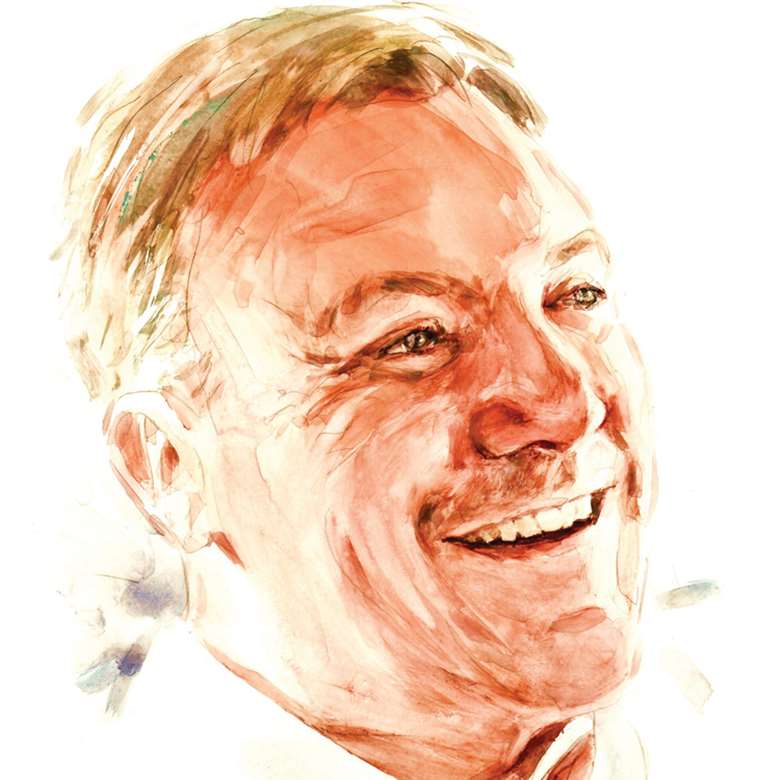My music: Ed Balls
Gramophone
Monday, August 24, 2015
The Labour politician on combining being Shadow Chancellor with learning the piano, and the terror of performing Schumann in concert

My parents met in a church choir in Norwich when they were 15, and singing in choirs was something they’ve done throughout their adult lives. So from the earliest I can remember there was music in the house, particularly choral music; I probably knew the key bits of Messiah and Zadok the Priest before I could really remember anything else.
I went to Keble College, Oxford, which then, as now, had a strong Anglican music tradition. During my time there, I heard the music of Howells for the first time, which has been a big thing for me ever since. It’s not very often in music that you can say the 20th century was the century – but in Anglican cathedral music it was brilliant. When I was Secretary of State for Children, Schools and Families, my office was opposite Westminster Abbey, which held a service for the department. I was allowed to choose the music, so I chose Dyson in D.
I started to play the violin from the age of seven, and played for about 15 years. I do have very good memories, though some bad ones too – in the school orchestra I scrubbed my way through a lot of operatic overtures and symphonies, which I didn’t particularly enjoy. But I had a very good violin teacher who also played semi-professionally, and so we played a lot of Handel concerti grossi and a bit of The Four Seasons, and when I was 14 we did a performance of The Lark Ascending in which he played the solo part – there was no way I could get anywhere near to playing that, but I could play the second violin part in the orchestra, and the piece has remained one of my favourites.
The reality is that I liked playing music with other people, but was never really good enough to play on my own – that’s the tragedy of the violin. A couple of times I played in quartets – 15 years ago I played in a string quartet with John Gapper and Gillian Tett, now top columnists for the FT. But I stopped doing that kind of thing for a long time – until I started playing the piano.
I started lessons just as I became Shadow Chancellor, in January 2011. I decided that, if I was going to do it, the only way to learn properly was to do the exams – to make myself play the scales and learn the techniques. I took Grade 1 that November. It was like being nine years old again – there was no concession to the fact that I was an adult. Afterwards I lent over to the examiner and said, ‘It’s much more stressful than the House of Commons’ – and realised from his expression that you’re not meant to have a conversation! We established a rule early on at home: when I start a new grade and choose my three pieces, I have to get the agreement of all the family on them – and Yvette has a veto – because they are going to hear them lots and lots of times…
The Editor of The Guardian, Alan Rusbridger, asked me to take part in a concert in which different people played one of the 13 pieces of Schumann’s Kinderszenen. It was on a Sunday morning the weekend after the Autumn Statement. I did a little bit of practice at 9am, then went and did the Murnaghan programme on Sky live at 10am, and then went back for the concert. I played the final piece, the reflective meditation on childhood, which from my point of view meant it was the slowest. But then you walk out, and you suddenly realise there are 500 people out there, and it’s utterly quiet…My hands were really shaking, but I managed to get through it without making a mistake. But it was so difficult! The TV and politics were nothing compared to this.
I’ve since played the Schumann live on Jeremy Vine’s programme, with seven million people listening to me. I’ve had so many letters from people I’ve never met, all writing about how they’ve started to play the piano in their fifties, sixties and seventies. These days when I get into a black cab, the driver won’t say anything about politics – they’ll turn round and say, ‘How’s the piano going?’
The recording I couldn't live without
Handel Ariodante – Dopo notte
Dame Janet Baker; ECO / Raymond Leppard
(Decca)
‘When I went to my interviews for university and work, this was the tape on my headphones that I’d listen to on the way there. It’s something I associate with leaving home and with doing new things.’







